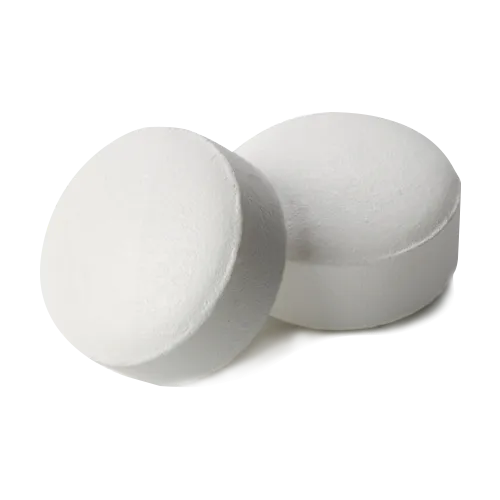Overview
Exelon, with the active ingredient rivastigmine, is a medication designed to treat mild to moderate dementia linked to Alzheimer’s and Parkinson’s diseases. It works by preventing the breakdown of acetylcholine, a key neurotransmitter for memory and cognition, thereby improving cognitive function and slowing symptom progression. Available in capsules, oral solutions, and transdermal patches, Exelon caters to varied patient needs, enhancing daily functioning and quality of life.
History of Development and Approval
Developed by Novartis, Exelon received FDA approval in 2000 for Alzheimer’s dementia, with later approval for Parkinson’s-related dementia. Extensive clinical trials established its safety and efficacy, making it a trusted option for managing cognitive decline.
Key Benefits
- Cognitive Improvement: Enhances memory, attention, and problem-solving for better daily performance.
- Symptom Delay: Slows dementia progression, preserving independence longer.
- Flexible Forms: Capsules, solutions, and patches suit diverse preferences.
- Steady Delivery: Patches ensure consistent drug levels, reducing dosing frequency.
- Quality of Life: Eases symptom burden for patients and caregivers.
Unique Properties
Exelon’s dual inhibition of acetylcholinesterase and butyrylcholinesterase boosts acetylcholine levels, enhancing neural communication. The patch form minimizes GI side effects and maintains steady drug levels, improving compliance and comfort.
Comparison with Similar Medications
Compared to other cholinesterase inhibitors, Exelon offers:
- Dual Enzyme Inhibition: Targets both acetylcholinesterase and butyrylcholinesterase for broader efficacy.
- Patch Option: Ideal for swallowing issues or GI sensitivity, with consistent delivery.
- Proven Efficacy: Strong results in Alzheimer’s and Parkinson’s dementia.
Safety and Tolerability
Exelon is generally well-tolerated, with mild, temporary side effects like nausea, vomiting, and appetite loss. The patch reduces GI issues. Rare serious effects include severe allergies, patch-site reactions, or GI bleeding, requiring prompt reporting and medical attention.
Indications for Use
Exelon is prescribed for:
- Alzheimer’s Dementia: Mild to moderate, improving cognition.
- Parkinson’s Dementia: Mild to moderate, managing cognitive decline.
Dosage and Administration
Adults: Capsules: Start 1.5 mg twice daily, increase to 3–6 mg twice daily. Patch: Begin 4.6 mg/24 hours, up to 9.5–13.3 mg/24 hours.
Children: Not indicated; safety unestablished.
Elderly: Same as adults, monitor for tolerability.
Timing: Capsules with meals; patches daily, same time.
Frequency: Capsules twice daily; patches once daily.
Notes: Gradual dose increases; rotate patch sites.
Mechanism of Action
Rivastigmine inhibits acetylcholinesterase and butyrylcholinesterase, raising acetylcholine levels to enhance brain cell communication, improving cognition and slowing dementia progression.
Composition
Active Ingredient: Rivastigmine, drives cognitive benefits.
Inactive Ingredients: Capsules: gelatin, cellulose; patches: acrylic, silicone for delivery/stability.
Side Effects
Common: Nausea, vomiting, appetite loss, dizziness.
Rare: Skin irritation (patch), fatigue, insomnia.
Serious: Severe allergies, breathing issues, GI bleeding require urgent care.
Prevention of Side Effects
Take capsules with food, rotate patch sites, start low doses. Report unusual symptoms promptly.
Contraindications
Avoid in hypersensitivity to rivastigmine or carbamates, severe liver issues.
Warnings and Precautions
Monitor for GI, heart, or neurological issues. Caution in asthma, seizures, or low weight.
Drug Interactions
Interacts with anticholinergics reducing efficacy; beta-blockers may increase heart risks. Disclose all medications.
Overdose
Symptoms: severe nausea, vomiting, sweating, seizures. Seek emergency care immediately.
Pharmacokinetics
Absorption: Capsules: peak 1 hour; patch: 8–16 hours.
Distribution: Widely, brain-penetrating.
Metabolism: Hydrolysis, minimal liver.
Elimination: Urine; half-life ~1.5 hours (capsule), 3–4 hours (patch).
Dosage Forms
Capsules (1.5–6 mg), oral solution (2 mg/mL), patches (4.6–13.3 mg/24 hours) for flexible use.
Pregnancy and Breastfeeding
Use if benefits outweigh risks (Category B); minimal milk excretion, consult provider.
Storage
Store at 20°C–25°C (68°F–77°F), dry, light-protected, away from children. Dispose expired properly.
Clinical Evidence
Trials show Exelon improves cognition and daily function in Alzheimer’s/Parkinson’s dementia versus placebo, with patch benefits for compliance.
Conclusion
Exelon effectively manages dementia symptoms with dual inhibition and flexible forms. Follow guidance, monitor effects, and communicate with providers for optimal outcomes.




